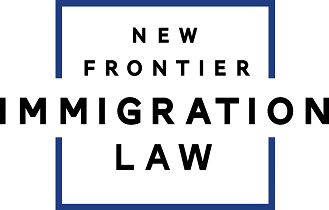
When applying for naturalization to become a U.S. citizen, you will likely need to provide your federal income tax returns as part of the process. These tax documents help demonstrate that you’ve been meeting your tax obligations while living in the U.S. and maintaining your resident status.
Applicants, including green card holders, should be prepared to submit transcripts of their recent tax returns to show compliance with U.S. tax laws. Failing to provide these documents or having unresolved tax liabilities could affect your eligibility for citizenship. An experienced Phoenix immigration lawyer can explain the requirements and documents you need.
Understanding the Naturalization Process
The naturalization process is a significant step for many individuals seeking to become U.S. citizens. It involves several stages, beginning with the submission of an N-400 application for citizenship. This application requires detailed information about your residency status, employment, and family background, among other aspects.
Once you submit your application, you will receive a notification for a naturalization interview. Additional steps in the naturalization process include:
- Providing documentation. This may involve tax returns, official records, and proof of your continuous residence.
- Undergoing a background check. This includes reviewing your criminal history and any records from law enforcement agencies.
- Taking an oath of allegiance. Once approved, you will take an oath to uphold the laws of the United States.
Understanding these steps can help alleviate some of the stress associated with the process. Being well-informed allows you to prepare adequately and seek help when needed, whether from an experienced immigration attorney or other professionals.
Do I Need to Take Tax Returns for Citizenship Interview?
The United States Citizenship and Immigration Services (USCIS) officer may ask to see your tax history as part of the naturalization process, especially if you are applying based on marriage to a U.S. citizen or have traveled outside the U.S. for extended periods.
Providing your tax returns helps demonstrate good moral character and confirms that you are meeting your tax obligations, which is an important aspect of the naturalization process. Here are some key items you should bring with you to your naturalization interview:
- Tax returns from the last 3–5 years: Especially important if you are applying based on marriage to a U.S. citizen or if you have had significant time outside the U.S.
- Your Permanent Resident Card (Green Card): Ensure that you have your green card with you, as it is required to prove your lawful permanent resident status.
- Valid passport(s) and travel documents: Bring all passports you have used since becoming a permanent resident, even if expired, to show your travel history.
- Government-issued photo ID: This could be a state-issued driver’s license, state ID, or another official ID with your photo.
This is not an extensive list, and you may need to bring some specific documents regarding your case, such as marriage certificates or proof of selective service registration. If you still have questions about what to bring with you to the interview, talk to an experienced Phoenix immigration lawyer.
For a free case review with an Immigration lawyer, call
How Does a Tax Return Affect a Citizenship Interview?
Your tax return plays an important role during the citizenship (naturalization) interview. It can affect the outcome of your application in several ways. Failing to meet your tax obligations may raise concerns about your moral character, which is a requirement for becoming a U.S. citizen. Here are a few key ways in which your tax returns might impact the interview:
Proof of Good Moral Character
Filing your taxes consistently and accurately shows that you are complying with U.S. laws. This is a key factor the United States Citizenship and Immigration Services (USCIS) considers when determining if you meet the moral character requirement for naturalization.
Demonstrates Financial Responsibility
Your tax history reflects your financial responsibility, which can be a factor in showing that you are contributing to society and fulfilling your duties as a permanent resident.
Implications for Long Absences from the U.S.
If you have spent long periods of time outside the U.S. during the years leading up to your citizenship application, your tax returns may be used to verify whether you maintained ties to the U.S. and paid taxes as a resident.
Joint Tax Returns for Marriage-based Applications
If you are applying for naturalization based on marriage to a U.S. citizen, you may need to show joint tax returns to prove the legitimacy of your marriage. This helps demonstrate that you and your spouse are financially integrated.
Addressing Past Tax Issues
If you have unpaid taxes or tax-related issues, it’s important to address them before your interview. The USCIS may ask about any back taxes or irregularities in your tax history, which could impact your application.
Bringing your tax returns to the interview is an essential part of showing that you have fulfilled your financial and legal responsibilities, helping to support your case for U.S. citizenship.
Tax Obligations and Eligibility Requirements for Naturalization
As part of the application for citizenship, you must show that you have complied with U.S. tax laws. This includes filing your federal income tax returns and paying any taxes owed, which helps establish your moral character—an essential aspect of becoming a U.S. citizen.
Here are some key points regarding tax obligations for naturalization applicants:
- Tax History. You are generally required to provide tax returns for the past five years, or three years if you are married to a U.S. citizen. This helps demonstrate your financial status and commitment to fulfilling your responsibilities as a resident.
- Tax Transcripts. It may be beneficial to gather tax transcripts or copies of your joint income tax returns, especially if you have filed with a spouse.
- Compliance Evidence. Be prepared to show records of your income, including any wage documentation and proof of tax payments. This can include copies of payment arrangements made with the IRS if you have outstanding tax liabilities.
- Good Moral Character. Failing to meet your tax obligations can negatively affect your application. USCIS looks for evidence that you are a responsible member of society, and that includes having no unpaid taxes or issues with the Selective Service System, if applicable.
If you are unsure about your tax situation or how it relates to your application, a Phoenix naturalization immigration lawyer can provide clarity. They can help ensure that you meet all requirements and understand how your tax history impacts your eligibility for citizenship.
Our immigration lawyers
Ask an Immigration Lawyer About Your Tax Obligations and the Naturalization Process
Since your tax status is a critical factor in the naturalization application, consulting with an experienced immigration attorney is highly recommended. An attorney can help you understand your obligations, ensure all your tax returns and income records are in order, and guide you through the entire application process.
Immigration lawyers at New Frontier can also answer questions about other documentation you might need, such as birth certificates, marriage certificates, and certificates of divorce. An attorney can also assist with specific tax questions related to your status as a green card holder or resident alien, ensuring you are fully compliant with U.S. tax laws before your naturalization interview.






